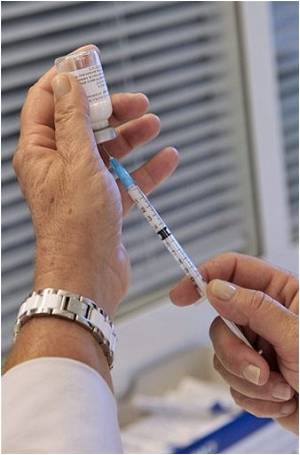A new mechanism that explains how certain immune cells are activated to create protective antibodies against infections has been discovered by scientists.

MyD88 is a signaling protein that alerts the so-called innate immune system. TACI is a receptor protein used to activate immune cells in the so-called adaptive immune system.
"Our research shows that TACI and MyD88 are part of an immune circuit that bridges the innate and adaptive immune systems. This circuit makes our immune response more flexible, allowing a more effective generation of protective antibodies during infections. Genetic defects of TACI and MyD88 cause immunodeficiencies characterized by recurrent, life-threatening infections. On the other hand, an abnormally strong TACI-MyD88 interaction may exacerbate autoimmune diseases like lupus or rheumatoid arthritis," said Dr. Cerutti, lead investigator of the study.
"Previous studies had suggested an involvement of TACI and MyD88 in lupus. Now that we have identified this interaction, we can figure out a way to inhibit it and prevent these diseases from getting worse."
Autoimmune diseases like lupus and rheumatoid arthritis are characterized by exaggerated production of molecules that activate the adaptive immune system and abnormal antibodies, which attack normal cells causing inflammation and tissue damage. This exaggerated production may occur partly as a result of abnormally strong signaling from TACI via MyD88.
By analyzing cells and tissues from immunodeficient patients and genetically engineered mice, Dr. Cerutti's team found a previously unknown interaction between TACI and MyD88 that is important for the production of antibodies against infectious agents. Yet, the same interaction may cause the exaggerated immune response in people with autoimmune diseases.
Advertisement
The research is published online in the September issue of Nature Immunology.
Advertisement












